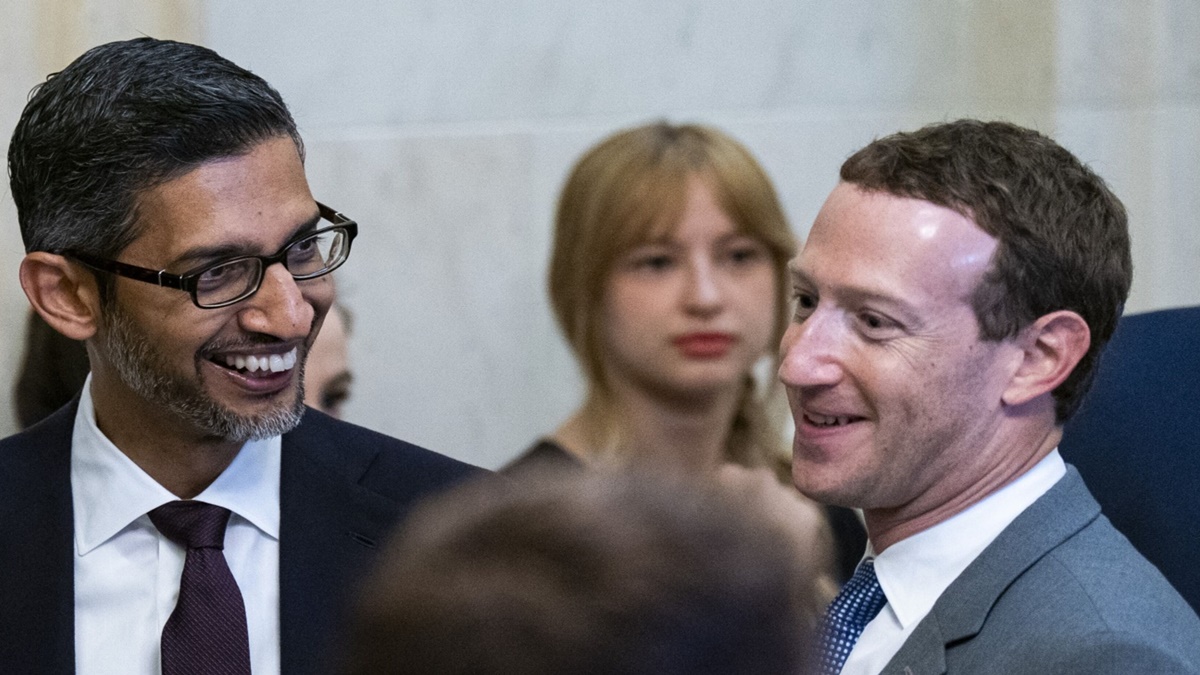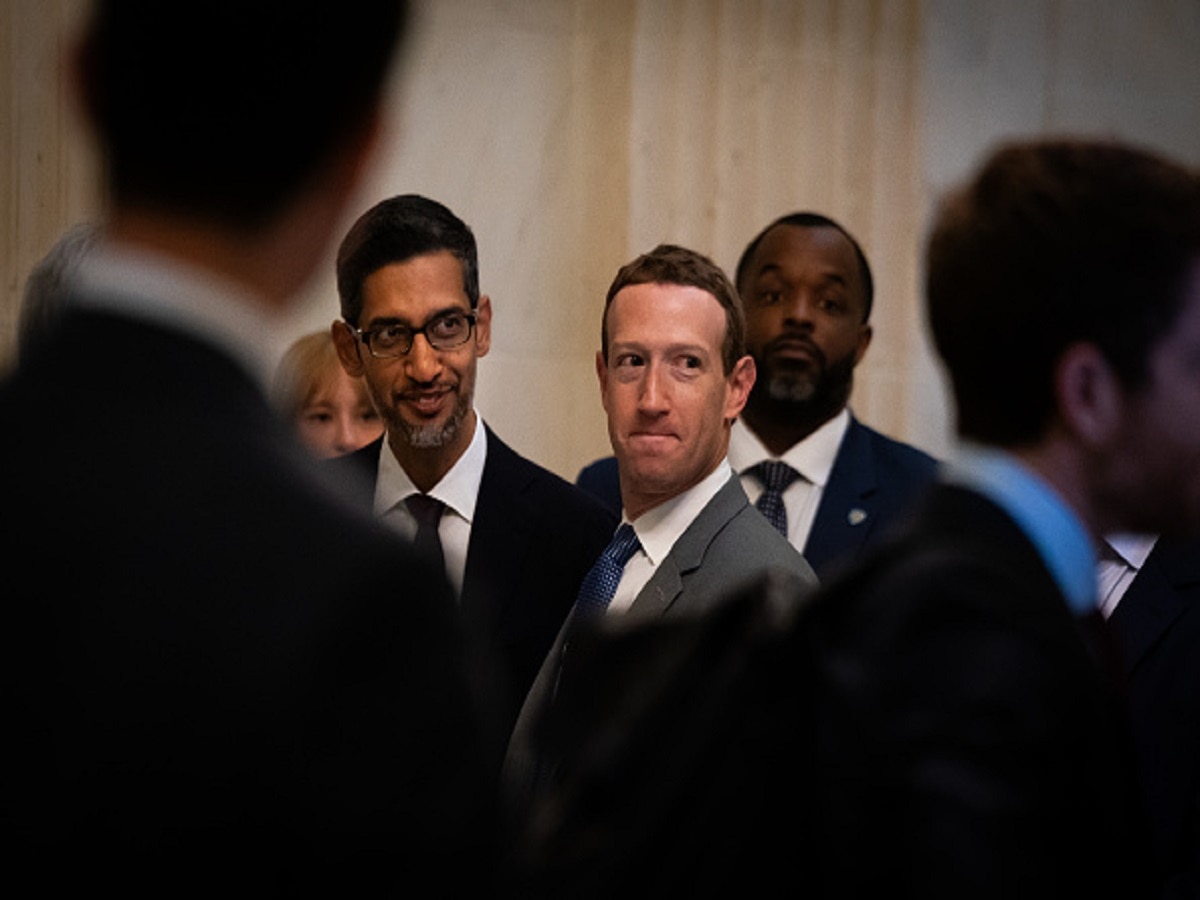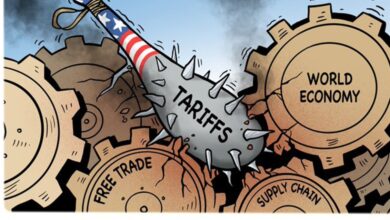INDIA bloc writes to Zuckerberg, Pichai; demands ‘neutrality’ during polls

INDIA bloc writes to Zuckerberg, Pichai; demands ‘neutrality’ during polls
The INDIA alliance has taken a strong stance against Meta (the parent company of Facebook) and Google, accusing them of facilitating the “communal hatred campaign of the ruling BJP” and suppressing content from opposition leaders. This move reflects concerns about the role of social media platforms in shaping political narratives in India.
In their letters to Mark Zuckerberg of Meta and Sundar Pichai of Google, the INDIA alliance has called for these tech giants to uphold “neutrality” in the lead-up to the 2024 Lok Sabha polls. They argue that social media platforms should not show favoritism toward any political party or group and should ensure a level playing field for all political participants.
The accusations of aiding communal hatred campaigns and content suppression highlight the complexities of social media’s influence on political discourse and public opinion. Social media platforms have faced criticism in various countries for their role in disseminating information and shaping political narratives, especially during elections.
India, as one of the world’s largest democracies, has a vibrant and dynamic political landscape. Ensuring that social media platforms maintain neutrality and do not favor any particular political group is a matter of significant concern for those seeking a fair and transparent electoral process.
The letters from the INDIA alliance to these tech giants underscore the importance of the role that social media platforms play in modern politics and the expectations placed on them to act responsibly and impartially in the context of elections and political discourse.
Congress President Mallikarjun Kharge has shared the letter from the INDIA alliance to Mark Zuckerberg, CEO of Meta, on a social media platform, indicating that the letter cites exhaustive investigations conducted by The Washington Post. These investigations reportedly suggest that Meta may have played a role in fostering social disharmony and inciting communal hatred in India.
The mention of The Washington Post’s investigations underscores the seriousness of the allegations against Meta and its impact on India’s social and political landscape. The role of social media platforms in disseminating information and shaping public opinion has come under increased scrutiny in recent years.
The letter from the INDIA alliance and its subsequent sharing by political figures like Mallikarjun Kharge highlight the significance of transparency, accountability, and responsible conduct by tech companies in the realm of social media. Such actions also emphasize the role of investigative journalism in uncovering potential issues related to social media platforms’ influence on society and politics.
The letter from the INDIA alliance provides important context and information about their concerns regarding the role of social media platforms, particularly WhatsApp and Facebook, in Indian politics. The letter highlights the following key points:
- Representation: The INDIA alliance represents a coalition of 28 political parties in India, many of which are part of the opposition. They claim to be the ruling alliance in 11 states, and their combined representation encompasses nearly half of all Indian voters. This underlines their significance as a political force in the country.
- Reference to The Washington Post: The letter cites a report by The Washington Post, a prominent U.S. newspaper, which allegedly discusses the role of WhatsApp and Facebook in supporting the communal campaign of the ruling Bharatiya Janata Party (BJP). The report is said to provide details on how divisive propaganda is disseminated through WhatsApp groups associated with BJP members and supporters.
These points provide background information about the INDIA alliance’s concerns and their reference to investigative reporting by The Washington Post. The alliance’s focus on the alleged role of social media platforms in political campaigns and communal messaging underscores the importance of responsible digital communication in the context of Indian politics and elections.
- References to Investigative Reporting: The INDIA alliance mentions articles in The Washington Post, one of which is titled ‘Under India’s Pressure, Facebook Let Propaganda and Hate Speech Thrive.’ According to the alliance, these articles provide evidence of blatant partisanship by Facebook India executives in favor of the ruling Bharatiya Janata Party (BJP). This alleged partisanship has been a known concern within the opposition for some time.
- Accusations Against Meta: The letter accuses Meta of abetting social disharmony and inciting communal hatred in India based on the investigative reports. The alliance also claims to have data indicating algorithmic moderation and suppression of content from opposition leaders on Meta’s platform while promoting content from the ruling party.

- Concerns About Interference in Democracy: The letter expresses concerns about the perceived interference in India’s democracy by a private foreign company that appears to favor a particular political group. The alliance views this as a serious matter and emphasizes that they will not overlook it.
These points underscore the alliance’s deep concerns about the influence of social media platforms in shaping political narratives and fostering partisanship. They argue that such actions by a tech company could potentially impact the democratic process in India. The letter serves as a formal communication of these concerns and calls for accountability and neutrality in the digital sphere.The INDIA alliance’s letter to Meta emphasizes the critical importance of maintaining neutrality in the operation of social media platforms in India, particularly in the lead-up to the national elections scheduled for 2024. They make an earnest and urgent plea to Meta to consider the presented facts seriously.
The alliance expresses its concern that Meta’s operations in India should not be used, whether knowingly or unknowingly, to contribute to social unrest or distort India’s democratic ideals. This plea underscores the gravity of the situation as perceived by the opposition parties in India, who believe that the conduct of social media platforms can significantly impact the democratic process and social harmony in the country.
The letter serves as both a call for responsibility and accountability on the part of Meta and a reminder of the crucial role that social media platforms play in influencing public opinion and political discourse in India, particularly during election campaigns. The alliance’s request for neutrality and the preservation of democratic ideals reflects their commitment to ensuring a fair and transparent electoral process in the country.
The letter from the INDIA alliance highlights their concerns regarding the alleged partisanship and favoritism by Facebook and its parent company, Meta, towards the ruling political dispensation in India. The key points from the letter include:
- References to Investigative Reporting: The INDIA alliance mentions articles in The Washington Post, one of which is titled ‘Under India’s Pressure, Facebook Let Propaganda and Hate Speech Thrive.’ According to the alliance, these articles provide evidence of blatant partisanship by Facebook India executives in favor of the ruling Bharatiya Janata Party (BJP). This alleged partisanship has been a known concern within the opposition for some time.
- Accusations Against Meta: The letter accuses Meta of abetting social disharmony and inciting communal hatred in India based on the investigative reports. The alliance also claims to have data indicating algorithmic moderation and suppression of content from opposition leaders on Meta’s platform while promoting content from the ruling party.
- Concerns About Interference in Democracy: The letter expresses concerns about the perceived interference in India’s democracy by a private foreign company that appears to favor a particular political group. The alliance views this as a serious matter and emphasizes that they will not overlook it.
These points underscore the alliance’s deep concerns about the influence of social media platforms in shaping political narratives and fostering partisanship. They argue that such actions by a tech company could potentially impact the democratic process in India. The letter serves as a formal communication of these concerns and calls for accountability and neutrality in the digital sphere.
The INDIA alliance’s letter to Meta emphasizes the critical importance of maintaining neutrality in the operation of social media platforms in India, particularly in the lead-up to the national elections scheduled for 2024. They make an earnest and urgent plea to Meta to consider the presented facts seriously.
The alliance expresses its concern that Meta’s operations in India should not be used, whether knowingly or unknowingly, to contribute to social unrest or distort India’s democratic ideals. This plea underscores the gravity of the situation as perceived by the opposition parties in India, who believe that the conduct of social media platforms can significantly impact the democratic process and social harmony in the country.
The letter serves as both a call for responsibility and accountability on the part of Meta and a reminder of the crucial role that social media platforms play in influencing public opinion and political discourse in India, particularly during election campaigns. The alliance’s request for neutrality and the preservation of democratic ideals reflects their commitment to ensuring a fair and transparent electoral process in the country.




